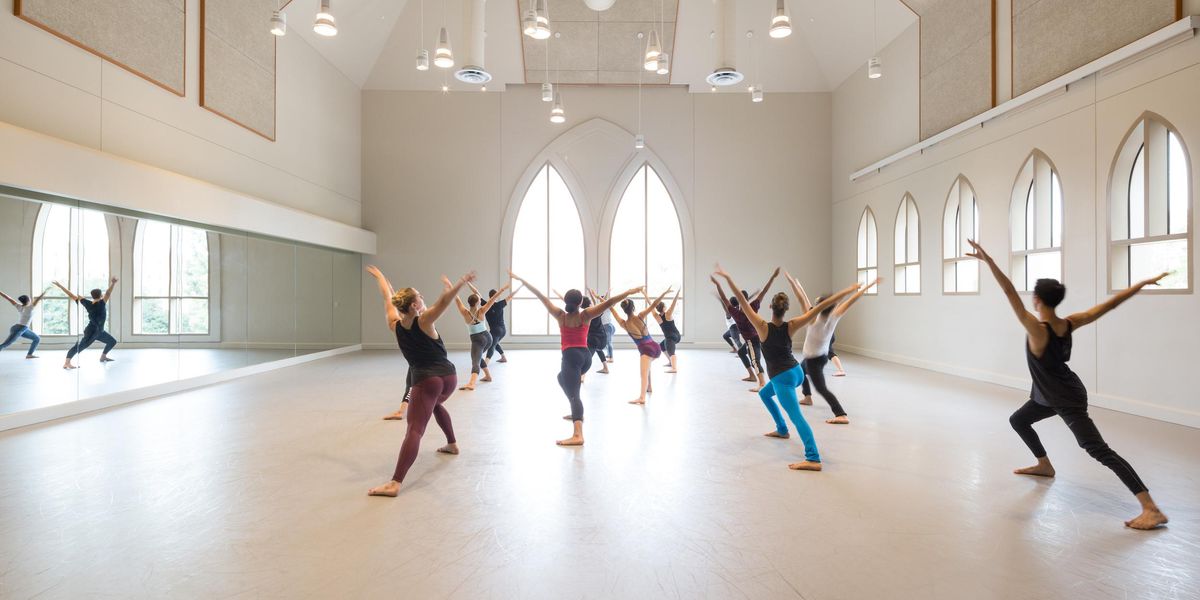Dance Matters: Dance Heals All
Montreal’s National Centre for Dance Therapy is the first of its kind.
Les Grands Ballets Canadiens de Montréal is expanding the scope of its artistic activities with some outside-the-box thinking: using dance as an activity to improve the quality of people’s health. On April 23, LGBCM officially announced the creation of the world’s first National Centre for Dance Therapy, in partnership with health and higher-education institutions in Quebec. “We’re increasing our outreach, bridging the health and arts sectors,” says LGBCM executive director Alain Dancyger.
At left: Photo by Marie-Reine Mattera, design by Upperkut, Courtesy LGBCM.
Canada has few accredited dance therapists, and those that are, were certified through American Dance Therapy Association programs. The new center offers three interconnected services: dance/movement therapy, clinical research, and a graduate-level degree training program in dance therapy. The company is partnering with New York’s 92Y Harkness Dance Center and licensing its ADTA-certification curriculum.
This September, the first 20 students will be selected. Candidates must either be enrolled in an MA program, or have five years’ professional dance experience—a requirement that, Dancyger says, is likely to provide new job opportunities for professional dancers transitioning out of performing careers. Three intensive three-week training sessions at LGBCM’s Montreal-based studios will start in July 2014, continuing over an 18-month period. A multitude of employment possibilities will await graduates, both at the center and within the health care system.
The first phase of pilot research projects, pegged at $285,000 (Canadian), is funded by Quebec’s Ministry of Health and Social Services. The new center has teamed up with Concordia University’s PERFORM Centre, a clinical research facility promoting healthy living, to study whether dance can improve physical and cognitive health in elderly populations. Other studies could involve children with physical or sensory deficiencies, as well as research with cancer patients.




